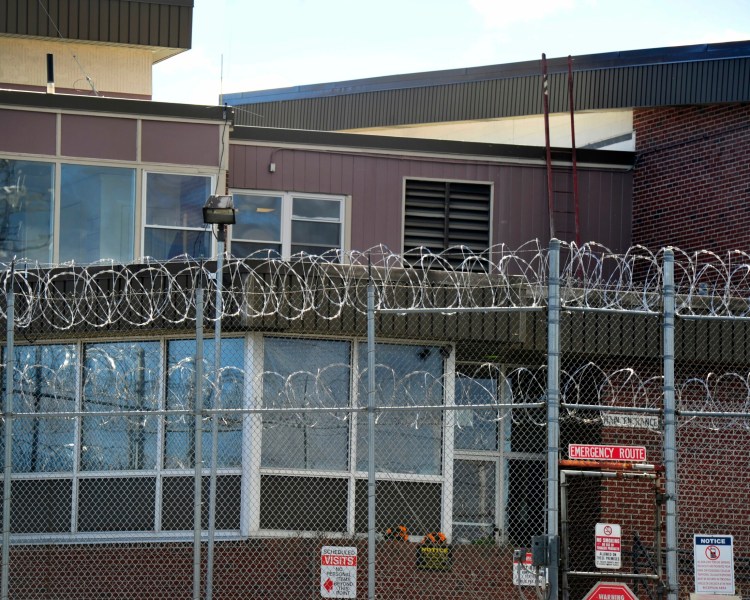The American Civil Liberties Union of Maine is calling on state health officials to prioritize residents and staff of prisons and jails in their COVID-19 vaccination plan.
The advocacy organization sent a letter Monday to the Department of Health and Human Services and the Center for Disease Control and Prevention asking that these individuals be included in Phase 1 of the state’s vaccine distribution plan. Several states, including Massachusetts, plan to vaccinate incarcerated individuals in the first wave.
“Maine has a moral and legal obligation to provide adequate health care to people who are incarcerated, which includes ensuring that they are vaccinated against COVID-19,” Meagan Sway, policy director of the ACLU of Maine, said in a statement. “They live in crowded facilities where social distancing is not possible, and many incarcerated people are medically vulnerable. They face a greater risk of exposure to COVID-19.
“But the risk is not just to people who are incarcerated,” Sway continued. “Prioritizing jails and prisons helps to keep the larger community safe as well. Prison and jail staff deserve to have a safe work environment. They shouldn’t worry that when they go home from work, they might bring the virus to their families, and the communities where they live.”
According to the state’s draft plan for vaccinations, jail and prison residents are in Phase 2, which puts them behind health care workers, first responders and nursing home residents and staff.
Maine CDC Director Dr. Nirav Shah was asked last Friday about it and said his agency was considering whether to move jails and prisons into Phase 1 but no decision had been made.
Asked Monday, Maine DHHS spokeswoman Jackie Farwell said the state “is committed to safely and efficiently vaccinating all Maine residents as quickly as possible, guided by a plan for accessible, flexible and equitable distribution of the COVID-19 vaccine,” but was noncommittal about the ACLU’s request.
“Maine’s vaccination plan continues to evolve, as expected since the draft plan was released in mid-October, in response to new guidance and information from the U.S. CDC and Operation Warp Speed,” she said in an email. “The health needs of Maine people who are disproportionately affected by the pandemic, including individuals in correctional settings, are part of this planning moving forward.”
Nine states – Massachusetts, Connecticut, Delaware, Maryland, Nebraska, North Carolina, Montana, Nevada and New Mexico – have included incarcerated individuals in the first phase for vaccinations, the ACLU said.
“We know that decision about allocating and distributing limited COVID-19 vaccines will be complex and difficult,” Sway said. “But Maine must make these decisions based on the public health evidence, and prioritize access for those communities that have been disproportionately affected by the disease.”
There have been several COVID-19 outbreaks associated with jails and prisons, both in Maine and other parts of the country. The ACLU estimated that incarcerated individuals have an infection rate that is nearly 500 percent higher than the state’s infection rate as a whole.
The York County Jail experienced an outbreak that started when a staff member attended a wedding in the Millinocket area over the summer that became a super-spreader event. That outbreak was made worse by jail policies that did not mandate mask-wearing, among other things.
More than 100 staff members and residents of the Maine Correctional Facility in Windham were infected with COVID-19 as of last month in one of the state’s largest single-site outbreaks to date.
Other correctional facilities have seen outbreaks as well, including the Androscoggin County Jail in Auburn last month, and an outbreak that was just announced last week at Mountain View Correctional Facility in Charleston.
Vaccinations began in Maine last week with front-line hospital workers and continued this week with nursing home residents. Roughly 5,000 people in Maine had been vaccinated as of Monday morning. Thousands more are expected to receive vaccines in the coming weeks as production and distribution ramp up.
Send questions/comments to the editors.




Comments are no longer available on this story